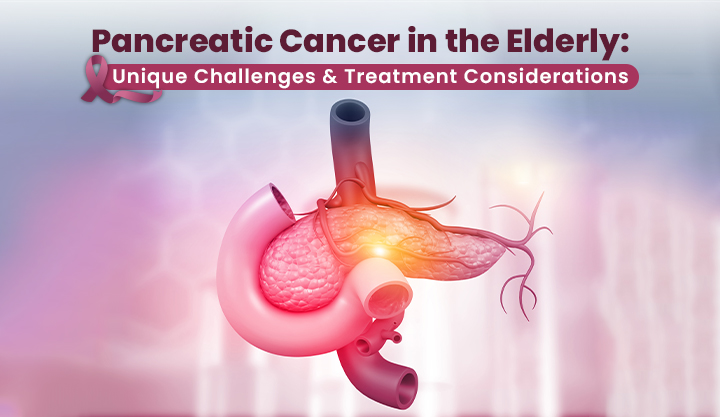
Pancreatic Cancer in the Elderly: Unique Challenges and Treatment Considerations
Pancreatic cancer is a sneaky disease that can catch anyone off-guard, but it can be particularly tough for elderly patients. As we age, our bodies become more vulnerable to all kinds of illnesses, including cancer. And when it comes to pancreatic cancer, things can get really challenging. Did you know that even though pancreatic cancer is only the 12th most common cancer worldwide, it’s the 4th leading cause of cancer-related deaths? That’s why it’s important to understand the unique challenges that elderly patients with pancreatic cancer face and the treatment options available to them.
Challenges for Elderly Patients with Pancreatic Cancer
- Late Detection: One of the biggest challenges that elderly patients with pancreatic cancer face is that the disease is often not detected until it has advanced to a later stage. This can make it more difficult to treat and can result in poorer outcomes.
- Multiple Medication: Additionally, elderly patients may be more likely to have other medical conditions or to be taking multiple medications, which can complicate treatment decisions and increase the risk of side effects.
- Symptoms Affecting Quality Of Life: Another challenge for elderly patients with pancreatic cancer is that they may be more likely to experience symptoms such as fatigue, pain, and weight loss, which can impact their quality of life. This can be especially difficult for elderly patients who may already be dealing with age-related declines in health and mobility.
Treatment Options for Elderly Patients with Pancreatic Cancer
When it comes to treating pancreatic cancer in elderly patients, there are various options available that can help manage the disease and improve the patient’s quality of life. Here are some of the most common treatment options:
- Surgery: Surgery is usually the preferred treatment option for pancreatic cancer, as it offers the best chance of a cure. The type of surgery used will depend on the stage and location of the cancer, as well as the patient’s overall health.
- Chemotherapy: Chemotherapy involves using powerful drugs to kill cancer cells. It can be used as a complete treatment or combined with other treatments like surgery or radiation therapy. Chemotherapy is often recommended for patients who are not candidates for surgery.
- Radiation Therapy: Radiation therapy uses high-energy rays that kill the cancer cells. It can be used in combination with other treatments or alone. Radiation therapy is often used to shrink tumors before surgery or to relieve symptoms such as pain.
- Palliative Care: Palliative care focuses on easing the symptoms and improving the quality of life for patients with advanced or terminal pancreatic cancer. It can include pain management, nutritional support, and other therapies to help patients feel more comfortable.
Ultimately, the treatment approach for elderly patients with pancreatic cancer will depend on various factors such as the patient’s overall health, the stage and location of the cancer, and the potential for side effects. It’s important for patients and their families to work closely with their healthcare team to explore all available options and make informed decisions about care.
Survival Rates For Elderly Patients
Survival rates for elderly patients with pancreatic cancer can vary a lot, depending on a variety of factors. However, research has shown that elderly patients who are in good overall health and who receive appropriate and timely treatment can achieve survival rates that are similar to those of younger patients.
If you or a loved one is facing a diagnosis of pancreatic cancer, it’s important to work closely with your healthcare team to explore all available treatment options and make informed decisions about care. Remember, you’re not alone in this fight, and there is hope for a brighter future.
